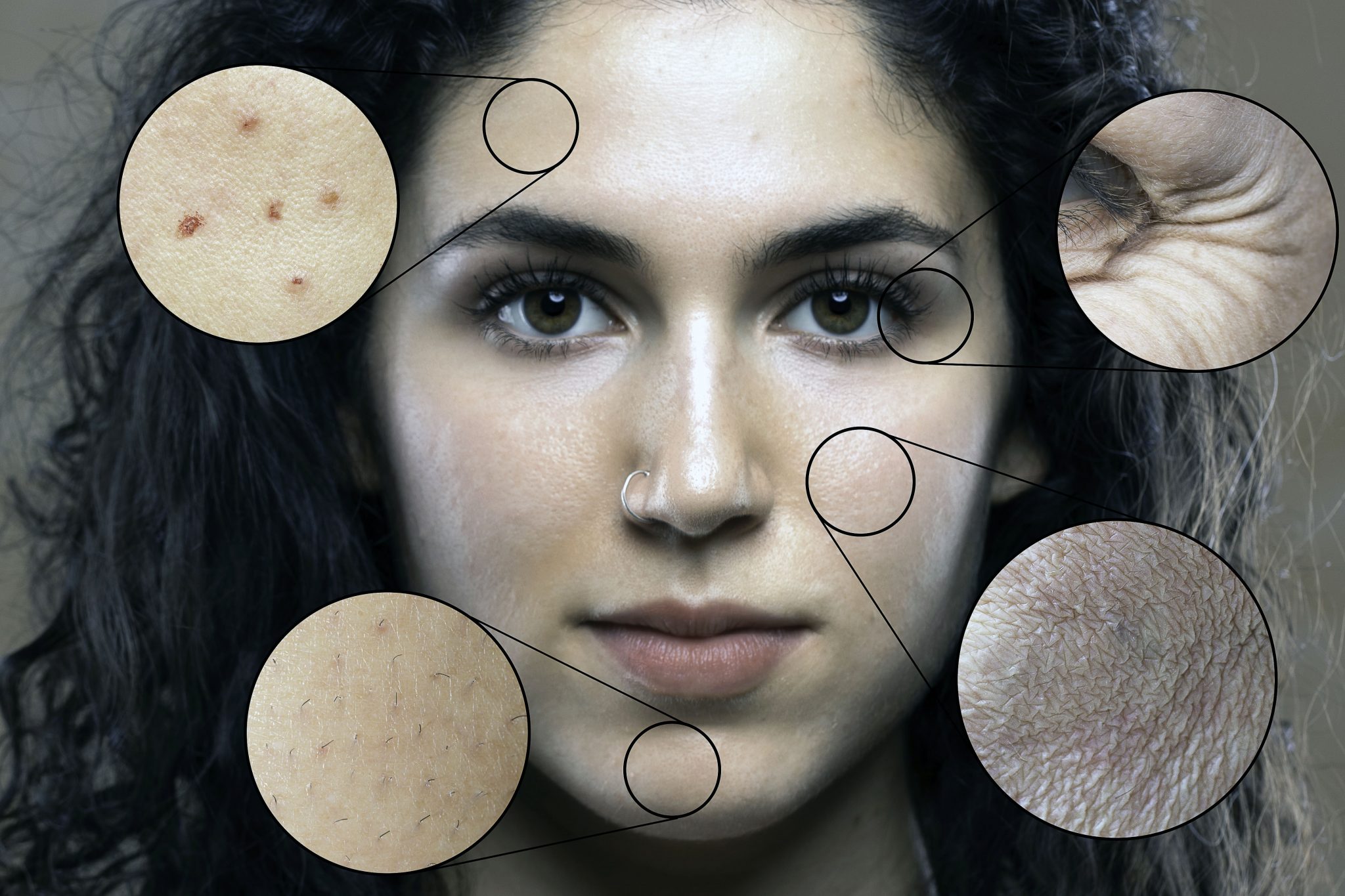Laser treatment is a popular and safe skin treatment for a wide array of problems. Laser treatments include:
- Reducing fine lines and wrinkles
- Removing acne scars
- Tattoos
- Sun-spots
- Loose skin
- Spider vein removal
In the skilled hands of a professional who specializes in cosmetic dermatology, laser treatments are safe and effective. To understand the potential benefits of laser resurfacing, you need to understand the basic types of treatment.
Types of Lasers used for the treatment of skin conditions
Ablative
These are the most powerful treatments, which remove the entire first layer of skin (epidermis) and often also effective the second layer (dermis). The laser superheats water in the skin, ablating skin cells. The body produces new skin cells which appear healthier. The new growth causes the skin to look tighter, removing, or reducing fine lines and wrinkles. Benign skin growths are destroyed and sunspots are lightened. Recovery time for this type of procedure is about a week although it can take up to six months to see the full results. Some stubborn skin issues can require more than one treatment.
Non-ablative
You might have guessed, these treatments are gentler than their ablative counterparts. These types of treatments have little to no recovery time, but they will require numerous treatments to see satisfactory results. There are some skin types, such as dark skin, that respond best to non-ablative treatment.
Fractionated
This is a different type of laser that creates a middle-ground between ablative and non-ablative. Fractionated lasers work faster than non-ablative lasers, but not as quickly as ablative ones.
A dermatologist will usually have several different lasers and can combine their uses to work out a treatment plan to give you the results you want. Different states have different licensing requirements for those who can do these types of treatments. Make sure you are choosing a certified medical professional such as a dermatologist or plastic surgeon.
What to expect
Laser treatment is almost always an outpatient procedure. Depending on the type of treatment you are undergoing, your doctor may choose a local anesthetic or sedation. The procedure itself may last from 45 minutes to two hours. Aftercare will include avoiding the sun, using protective sunscreen, and your doctor may prescribe an antibiotic to ensure there is no infection while the skin regenerates. Your doctor will also probably prescribe an antiviral to take before and after surgery to prevent the risk of developing a viral infection.
Some swelling immediately after the procedure is normal. Sleeping on an extra pillow or two may help reduce swelling faster. After the first 24-hours, you will clean the skin 3-4 times a day and apply a protective ointment. Your doctor will discuss what ointment to use and any other follow-up care with you.
You may feel some itching and stinging after the procedure that can last for up to 72 hours. It is normal, but ask your doctor about things you can do to reduce any discomfort. Applying cool compresses may be recommended, or your doctor may prescribe a soothing ointment to help with the sensation.
Laser treatments are a safe treatment option for many skin conditions. All treatments carry some risks, though. Your dermatologist should discuss these in detail with you, but some risk may include:
- Burns or other injuries from the laser’s heat
- Scarring
- Bacterial infections
- De-pigmenting of skin, especially in darker-skinned individuals
The reasons people seek laser treatment are varied. Tattoo removal is a common use, as people sometimes change their minds about wanting a particular tattoo. Acne scar removal can re-instill self-confidence, as does removing fine lines and wrinkles. Your doctor will counsel you about realistic expectations and your treatment options. Before and after pictures, from a reputable source, can help you understand what can be accomplished by laser treatment in the hands of a skilled professional.
Only you and your doctor can decide if laser treatment is right for you. Your skin can stay red or pink-tinged for a few months after surgery. Make-up with a green base is an effective way to mask the redness in your skin. Once healing is complete, you should notice a difference in your skin. The improvement in your skin, especially with proper care such as sun protection, can last for years.
At the Skin Cancer and Cosmetic Surgery Center of NJ, we provide two types of laser treatments, IPL laser and Resurfacing laser. Each laser treatment has it’s own benefits, administered by our dermatologists. Book a consultation with us today, to determine what laser treatment is best suited for your needs.

